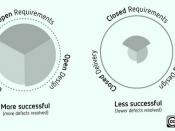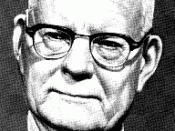A process is a sequence of activities intended to achieve some result. The four major categories of business processes are: 1) design processes, 2) production/delivery processes, 3) support processes, 4) supplier processes. Core processes are those that drive the creation of goods and services, are critical to consumer satisfaction, and impact the strategic goals of the organization. Support processes are critical to the operation of the business, but do not add value directly to the product or service. A core service is the initial service or services of an industry. For example, in the case of a bank, a checking account or savings account service is a core service. A facilitating service is a service that enhances the value of a core service to a customer. With the bank, automatic teller service would be an example of a facilitating service, allowing bank customers easier access to the core services.
Leading process management practices include: 1)Translating customer requirements into product and service design requirements 2)Ensuring that quality is built into products using appropriate engineering and statistical tools 3) Effective management of the product development process 4) Defining and documenting important production/delivery and support processes 5) Managing supplier and partnering relationships 6)Controlling quality and operational performance of all key business processes 7) Continuously improving processes using systematic problem-solving approaches 8) Setting stretch goals 9)Employing benchmarking and reengineering to achieve breakthrough performance.
Deming's System of Profound Knowledge consists of four interrelated parts: (1) appreciation for a system; (2) understanding of variation; (3) theory of knowledge; and (4) psychology. Appreciating a system involves understanding how each component of the system works to produce the end product or service, and understanding how the system may be optimized for better or smoother performance. Understanding of variation involves knowing and anticipating factors (i.e. increasing personnel, the...


